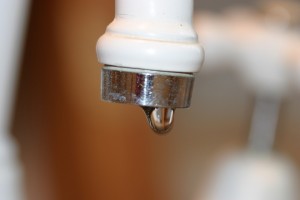How Does Hardness Affect Your Tap Water
Regardless of where you live in the United States, you will find that all tap water is not the same. Some consumers have water that is deemed “soft” while others have “hard water”. Both these types of water behave in different ways, affecting cleaning power and the potential for corrosion. Unfortunately, there is no clear guideline for which water is best as soft water isn’t always the best option, and hard water is often not better than soft. To properly assess your options, you should be aware of the basic principles and how hardness impacts your tap water.
The Basic Facts:
Water hardness is calculated by measuring the levels of minerals dissolved in it. These are typically magnesium and calcium, but other minerals can also impact the hardness. According to data from the U.S Geological Survey, 85% of water supplies in the United States are classified as hard.
Soft water contains very few extra elements. This can be a naturally occurring state or as a result of water treatment systems that have removed the magnesium and calcium particles.
Water Hardness and Cleaning:
The most noticeable effect of water hardness is during cleaning. The particles in hard water tends to react with detergents and soaps, reducing the cleaning power and resulting in stains, soiling or dirty dishes. You may find that you are using more and more detergent for laundry and dishes with little to no effect. On the other hand, softened water tends to reduce the need for soap or detergent by up to 50%. The reason for this is that the water does not contain minerals that interact with the detergent. According to a Scientific Services S/D inc 2011 study, a soft water supply may allow you to wash at lower temperatures with less detergent to achieve better stain removal.
Water Hardness and Bathing:
Hard water can also have an adverse effect on the performance of soaps and shampoos. You may find that your skin feels dry and itchy as a film is left after showering or bathing. You may also notice that your hair feels dull and lank. Hard water can also create a film and scale build up in bathtubs and showers, which increases the need for cleaning with chemical products. Soft water tends to lather up far more easily, reducing skin irritation and improving the aesthetic appearance of your hair.
Water Hardness and Cooking:
Although water hardness is not associated with any detrimental health issues, it can have an impact on the taste and appearance of food and drinks prepared with water. You may find that tea and coffee has an odd aftertaste or that pots have a scale or film left on them after cooking. These effects tend not be experienced with a soft water supply.
Water Hardness and Energy Efficiency:
Another very noticeable side effect of a hard water supply is energy efficiency. Gas water heaters can experience an 8% loss of efficiency with every 5 grains of hardness per gallon. This represents an 8% increase in energy costs when a household uses 100 gallons of hot water each day. The underlying reason for this is that hard water causes a scale or residue to build up around heating elements in water heaters, washing machines and other water using appliances. This build up forces the appliance to use more energy to heat the water to the same temperature, compromising energy efficiency and increasing the risk of breakdown.
About The Author:
Greg Scott is President of Valparaiso based Miracle/EcoWater Systems, the premier water conditioning company in Northwest Indiana serving the Lake, Porter and LaPorte County areas. A 3rd generation water treatment professional, Greg grew up in the family owned business started by his grandfather in the late fifties. He has made water treatment his life and under his direction and high-standards, the company’s water treatment experience, knowledge, and products are unrivaled in region.
Back to
